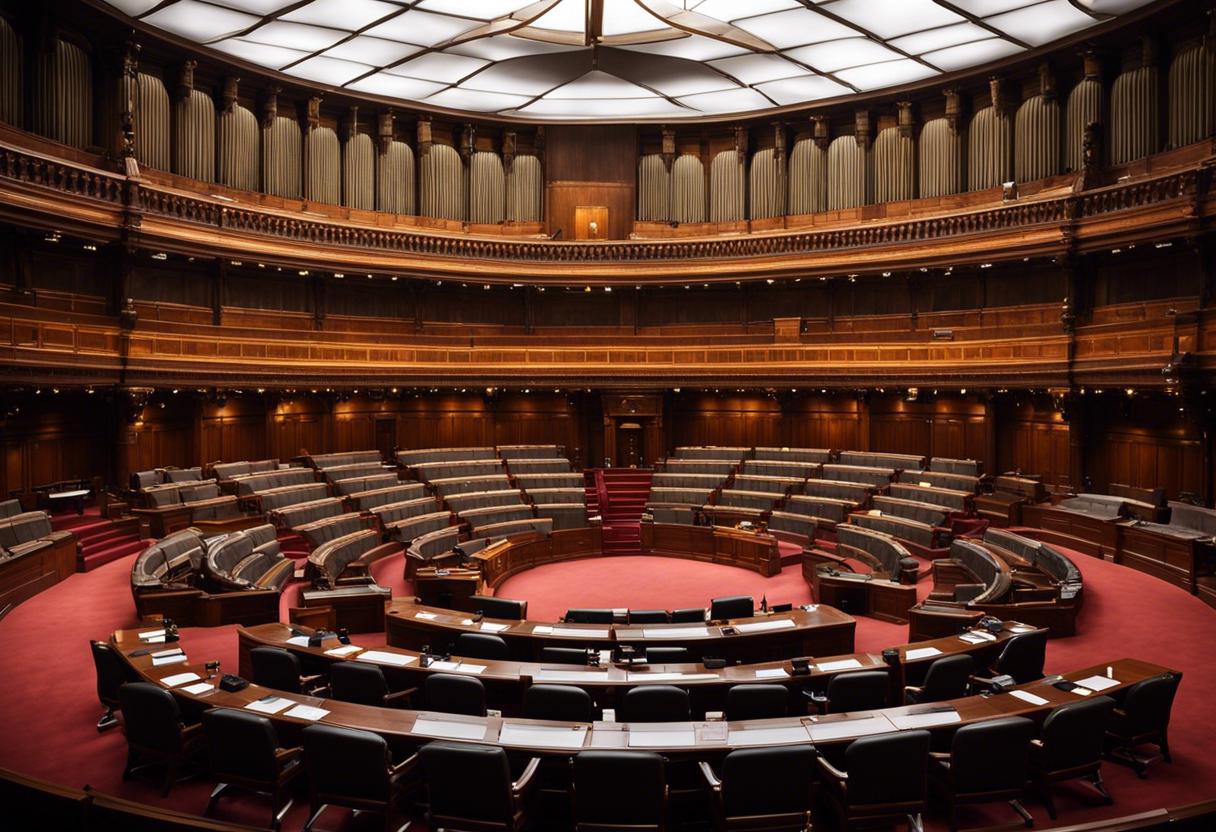After relocating to Scotland from Turkey 30 years earlier, Kadir Kavak has established two successful cafes, one in Edinburgh and the other, Café 66 in Broxburn, West Lothian, close to the Edinburgh airport. He expresses mistrust in politicians accusing Brexit of being baseless fabrications.
According to Kavak, Brexit is the root cause of his struggles to employ staff. Consequently, he chose to lease out his Edinburgh establishment and personally manage his Broxburn venture. His hands-on approach seems to be fruitful with a particularly attractive item on the menu being the irresistible red velvet cake.
Brexit and national movement present stark contrasts between the standpoints of the Scottish National Party (SNP) and Labour who are vying against each other to recover several seats lost to the SNP over the past decade. Labour strategically skirts Brexit issues and is apprehensive about migration, whereas the SNP stands alone among major parties in its advocacy for increased migration to boost the economy and its desire to counteract Brexit.
Carved between Edinburgh and Glasgow lies Scotland’s Central Belt, the hotly contested region between Labour and the SNP. This region held its loyalty to Labour for several generations until the 2014 independence referendum propelled the SNP into regional dominance. Labour perceives a resurgence in Scotland, where it managed to secure a single seat in 2019, as crucial to gaining the majority in Westminster.
Labour is optimistic about acquiring more than 25 Scottish seats in the upcoming July 4th UK election, including many within the Central Belt. Polls suggest several closely contested races, with Broxburn, situated in the Livingston constituency, poised as a major stronghold.
Broxburn’s unique name derives from Gaelic and Scots words signifying a ‘badger stream’. However, the buzz in the local pub, the Badgers Brook, is not focused on politics but centres instead on football, as Scotland prepared to face Germany in the opening match of the Euros. The mood in the town is defiant, despite the anticipated disappointments for Scotland’s team.
Empty stores are a common sight along the main street, apart from the Sole Man shoe repair shop, enticing customers to rejuvenate their footwear. There seems to be a shift of allegiance back towards Labour. An elderly local openly supports Labour, accusing the SNP of being obsessively focused on independence.
Kavak is displeased with the SNP’s emphasis on what he calls “hollow nationalism”, accusing them of manipulating emotions. He is concerned about the state of the NHS and the existence of vacant shops. Still, he is also opposed to casting his vote in favour of the Labour party, denouncing them as “bellicose” in regards to Gaza due to Starmer’s strong association with Israel.
A critical situation in Broxburn involves the shutdown of the council-managed swimming pool, which was closed due to financial constraints and is currently up for sale after a fire incident. Hannah Bardell, who is defending her Westminster seat against Labour’s Gregor Poynton, argues that funding should have been allocated for its repair. On the other hand, Labour insiders estimate the cost of a new boiler would be around £600,000.
Barely four hours prior to Prime Minister Rishi Sunak’s announcement of the election last month, Bardell and her partner, Lucienne Kennedy, hastily obtained a marriage licence. Bardell shared that the rush was because “both our mums are frail”. On top of launching her re-election campaign, she organised a wedding in just nine days.
Joining Bardell’s election campaign at Broxburn United football club is Neil Gray, the Health Secretary of Scotland. He acknowledges that certain individuals are attracted to Labour, considering she comes from a family of “Old Labour” herself. Although never overconfident, she remains hopeful about the fierce competition. They observe a divide in sentiment, with SNP supporters maintaining positive loyalty and Labour or unsure voters displaying ambivalence. Many are fed up with politics.
Gray, previously a Westminster MP before his move to the Scottish parliament, chastises Labour for aligning with a Tory “austerity agenda”. He argues for an increase in SNP MPs to counterbalance the mainstream narrative.
Meanwhile, Labour candidate Gregor Poynton, who served as a communications advisor to companies linked with Barack Obama, is seen appealing to voters in the fringes of Livingston. Most working-class residents are unclear about voting Labour, but do wish to oust the Tories. According to Poynton, the citizens understand choosing between “five more years of Tory rule, or a change with a Labour government”. He admits that the competition is tight.
In a fish warehouse in Larkhall, located in the southern part of Glasgow, Scotland’s deputy first minister, Kate Forbes, joined Ross Clark, the youthful SNP candidate for Hamilton and Clyde Valley in campaigning on Saturday. Walker, Clark’s Labour party rival, hails from London and is wedded to Morgan McSweeney – a Cork-born Starmer adviser. According to recent poll results, Walker has a slight leading edge.
Forbes lambasts Labour for their “brexit silence conspiracy” and sounds a warning bell that Labour cannot afford to take votes for granted, something the SNP is careful not to do.
Notably, Forbes targets Labour’s Angela Rayner, the party’s deputy chief who is most likely to clinch the UK deputy prime minister position, criticizing her for toeing the party’s stance of reduced migration and silence on Brexit. Rayner, on the other hand, is involved in campaigning for Poynton at Broxburn.
In both Larkhall on Union Street and Broxburn, typical working-class towns, the local residents are more captivated by the afternoon’s community gala parade than the impending election. The aim of both Labour and SNP is to pierce through this voter apathy and influence the narrow margin competitions in the Central Belt.

